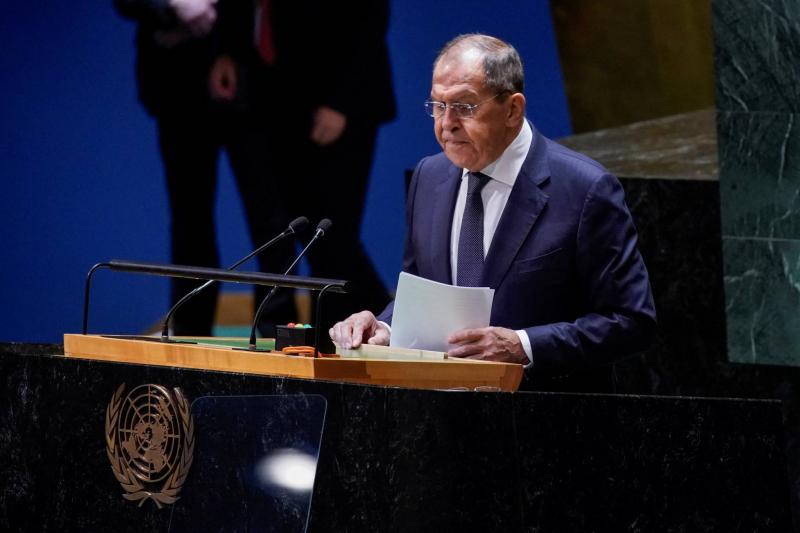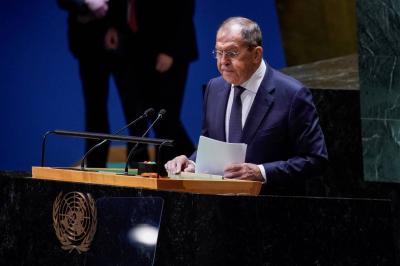Russian Foreign Minister Sergey Lavrov described the United States and Europe on Saturday as "disdainful" towards the rest of the world amid a battle for the allegiance of developing nations. He stated that Moscow does not reject the United Nations' efforts to revive the grain export deal via the Black Sea, but called the latest proposal in this regard unrealistic.
Lavrov announced that a new global system is emerging and highlighted in his speech at the United Nations that "BRICS defends its right to create a multipolar world." He characterized the situation as a "struggle between the global majority and a minority that only employs colonial methods of oppression to maintain its dwindling hegemony."
He called for "the lifting of U.S. sanctions imposed on Syria, Cuba, and Venezuela," and advocated for "resolving the Middle East crisis based on international resolutions and the Arab Peace Initiative." He continued that "the West bears responsibility for the disastrous situation in Sudan," expressing hope that "Libyans can achieve general elections."
Regarding Azerbaijan, he stated, "The time has come to take action to build trust between Armenia and Azerbaijan in the Nagorno-Karabakh region, and Moscow's forces will assist in that." Lavrov accused Western countries of trying to impose themselves as mediators between the two countries, which he claimed was unnecessary. He added, "Yerevan and Baku have already settled the situation," and remarked, "It is time to build mutual trust. There will certainly be Russian forces to help with that."
Russia has peacekeeping forces in the region, which is the Armenian breakaway enclave within Azerbaijan, where Baku launched an attack last week.
In a message to Lavrov last month, UN Secretary-General António Guterres outlined four measures the international organization could facilitate to increase Russia's exports of grain and fertilizers in an attempt to persuade Moscow to return to the Black Sea deal. Lavrov stated in a press conference at the UN after his speech before the General Assembly, "We explained to the Secretary-General why his proposals would not work. We do not reject them; they are simply unrealistic. They cannot be implemented."
Russia and Ukraine are major global grain exporters. Lavrov added that the 10-point peace plan promoted by Kyiv is "absolutely impractical," asserting that the resolution of the conflict will occur on the battlefield if Ukraine and the West cling to it.
Both Lavrov and Ukrainian President Volodymyr Zelensky attended a United Nations Security Council meeting on Ukraine, traveling to New York to speak at the UN in person for the first time since the Russian invasion, but they did not meet. Lavrov also stated that he would visit Pyongyang next month to continue negotiations with his counterpart there, following recent agreements made by Russian President Vladimir Putin and North Korean leader Kim Jong Un in Moscow.




